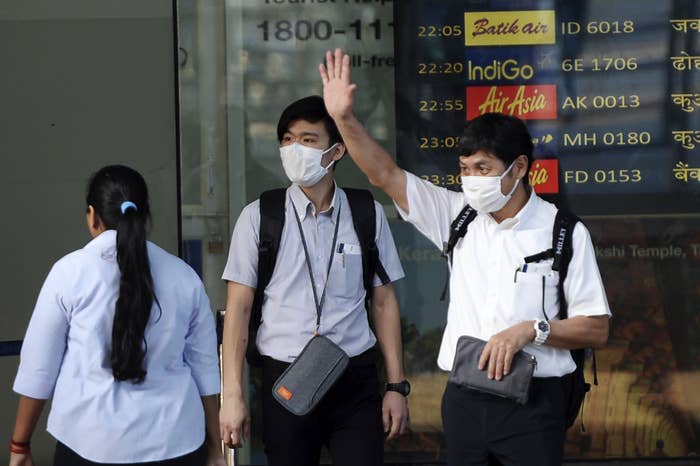
On Thursday, the World Health Organisation declared the coronavirus a global health emergency. The Chinese city of Wuhan, in Hubei province, which is the epicentre of the outbreak, is on lockdown, with public transport closed, outbound flights suspended, and some roads out of the city blocked. While the number of confirmed cases elsewhere has remained small, the panic generated by the coronavirus has managed to spread far beyond China’s borders.
In the UK, the Foreign and Commonwealth Office (FCO) has advised against all travel to the Hubei province and all but essential travel to the rest of China. These restrictions — and the public fear surrounding the virus itself — mean that many expats who have made China their home are hastily making plans to pack up and head elsewhere.
BuzzFeed News spoke to five expat teachers, all of whom are currently unsure about when they will be able to return to work as the coronavirus has meant the school holiday period has been extended, about what the future holds for them.
Josh, 22, from Hull, has been teaching English in regions across China. Currently, he’s in Changsha, approximately 200 miles away from Wuhan.
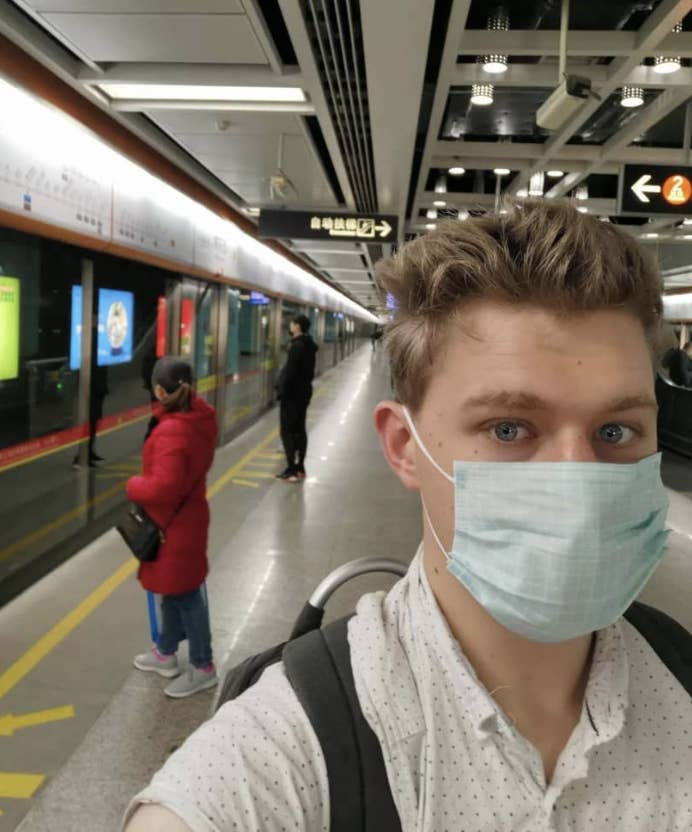
He said that currently, due to the region’s close proximity to Wuhan, hotels in Changsha are restricting foreigners or people from Wuhan from booking reservations. As a result, he’s been forced to try to look for somewhere else to stay — when he spoke to BuzzFeed News, it was approaching 1am and he still had not found somewhere that would let him stay the night.
“It’s all a bit messy — I can’t find a hotel to sleep in because of the new policy so I’ve booked a flight back to the UK. In the meantime, I’ll have to sleep in the airport or on a bus, which is less than ideal.
“In Changsha, they’ve closed everything down and it's like a ghost town. When I jumped on the metro train, I was the only one on it.
"Wearing a mask in public is mandatory, but there is a massive problem with mask shortages. The N95 masks are being sold at 10 times the usual price, particularly in Hong Kong where there’s a more dense population. I heard that China has asked other countries to import masks, but they’ve refused.
“My family are very worried and they want me to come back to the UK — so I'm flying to Helsinki, via Shangdu [in Northern China], and from there, I'll head back to the UK within the next few days."
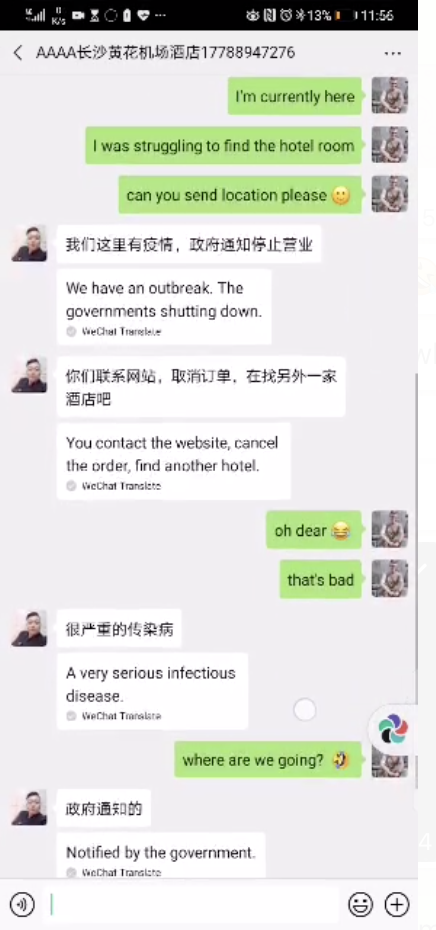
Chantelle, 24, from Kent, is teaching English in Foshan, in the Guangdong province — around 620 miles away from Wuhan.
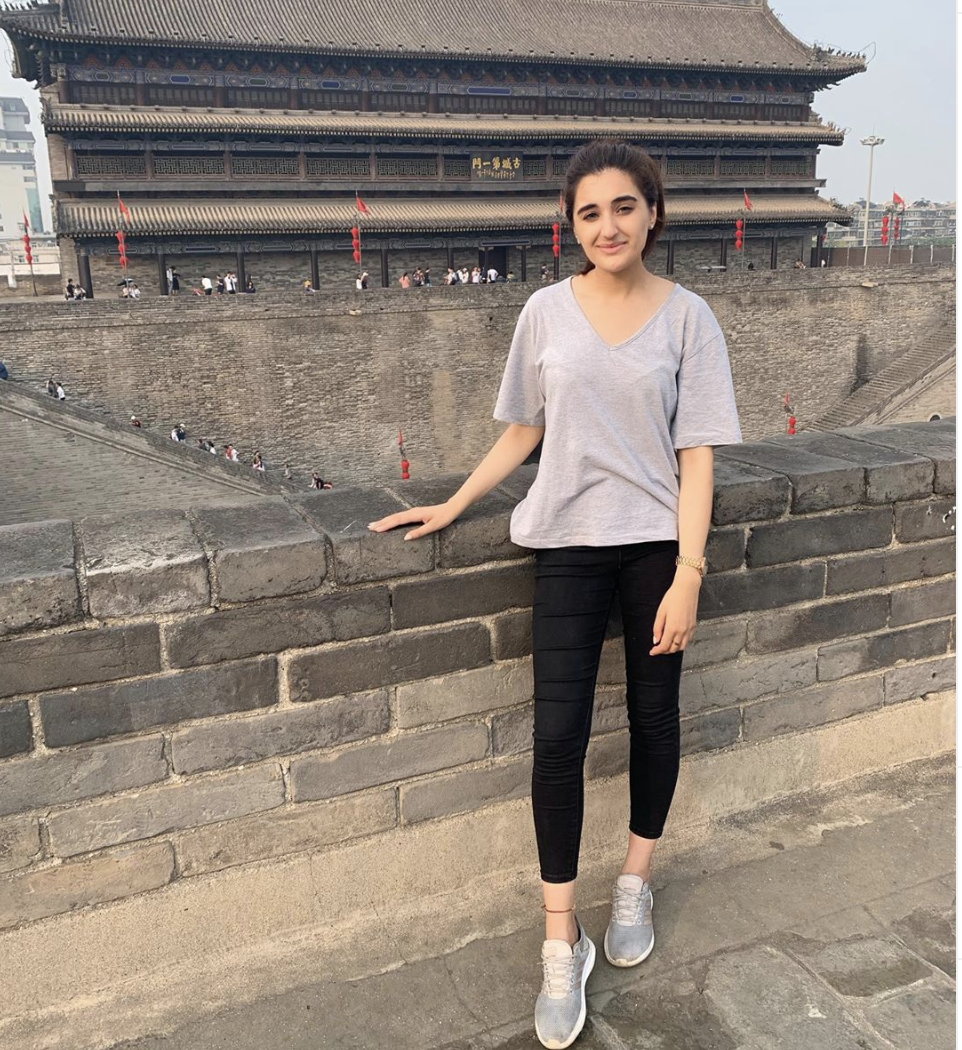
Over the winter break, Chantelle has been travelling with friends across Southeast Asia. Schools in Foshan have pushed back their winter break until further notice, so for now, she’s staying put in Malaysia, where she is currently.
“A lot of British expats are really stressed because we don’t know if the virus is covered under our insurance if we go back to China against FCO advice,” she told BuzzFeed News.
“I do want to go back to Foshan to see the year out — I committed to China and teaching and I’ll really miss the kids I teach if I leave. However, if they extend the holiday period even more, I’ll be coming back to the UK. Otherwise, there’s a real risk that if I go back, Foshan will go into lockdown and then I’ll be stuck.
“So I'll obviously be back in the UK a lot sooner than expected, but I'll just fly back to China when it's safe to."
Ryan*, 24, who has asked not to use his real name, is from London and has been living in Foshan for over two years working as an assistant academic head in a foreign language school.
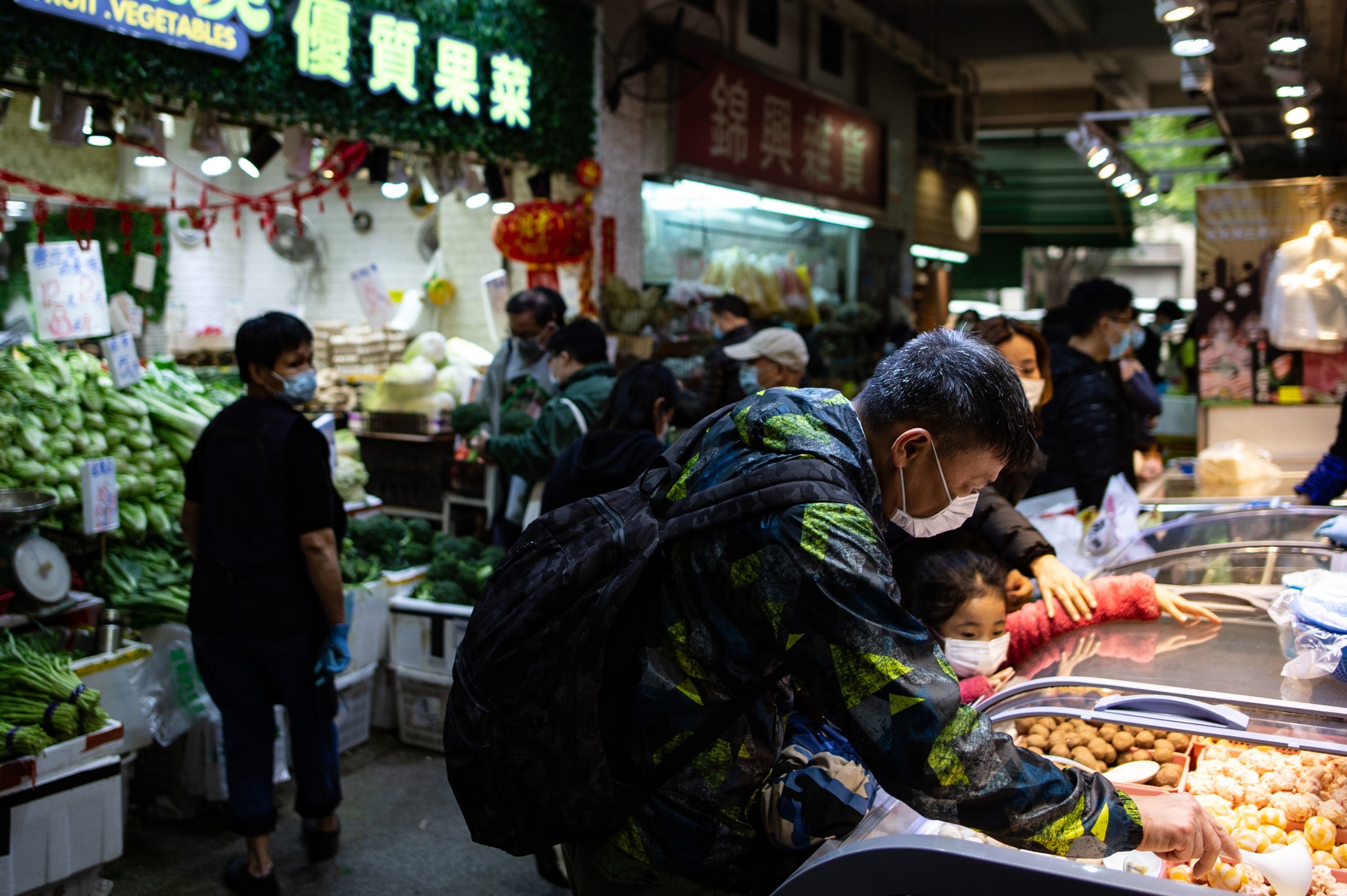
He travelled to Kyoto, Japan, during the winter break, but has said the situation back in China has become increasingly critical since he left.
“When I left Foshan for the winter break, everything was normal,” he said. “The first reported case of the coronavirus was in November or December and people knew it was bad when they shut down the market on New Year’s Day, however it never occurred to me that it could be this bad.
“The authorities in Foshan don’t give updates to anyone, so to speak, but rather to people below them, who pass it onto their subordinates. Information gets trickled down, which can lead to a lot of confusion about what’s going on.”
In Guangdong, the province where Ryan lives, it is mandatory to wear a mask in public.
“We were also advised not to trust unverified information circulated on WeChat and other Chinese social media.”
For this reason, Ryan is sceptical about the information the Chinese government has been disclosing to the public.
"The first death was reported way after the incubation period,” he claims. “There are also accounts of people from Hubei who have had family members pass away at that time and have the cause of death as pneumonia, but now doctors say it could well have been this. This makes me believe the actual figures are higher. At first, they believed that there was no human-to-human transmission. They also didn’t close down the city or the market until way too late.”
People have been sharing memes about the coronavirus on Chinese social media. The text translates to "take care of yourself."

In another Chinese meme about the coronavirus, the translation reads: "Fancy a drink outside?"

Despite other friends returning back to their home countries amid the hysteria, Ryan is hoping he can return back to Foshan and continue his teaching work.
“If I were to leave, the workload would be passed to someone else and it would be awful for them. At the end of my contract though, I would have to consider returning to the UK as an option.
“The people here have been incredibly kind and encouraged me to grow as an individual and learn a new language and culture. Simply because there is a strain of illness going around to never go back seems awful because I’ve gained so much here.
“People forget this country is still a developing country dealing with what looks like it could be an epidemic, and I see people using it as an excuse to pedal racial stereotypes and make vicious comments. The whole country is trying to rally together to help one another so for me to simply pack up and leave would seem incredibly rude.
"Nurses are working 48-hour shifts on the front line. Nurses and doctors are leaving their families during their festive period to help with the shortages. Workers from across the country are going to the epicentre to help build two new hospitals within two weeks to help meet the demand for beds. When you see this sense of community in a country, you feel obliged to do your part too.”
Jackson*, 26, who has asked not to use his real name, is from the UK and has been living in the city of Taicang working as a teacher. He’s currently in Bali for the winter break but had to cancel his flight back to China because of imposed travel restrictions.

“I had to wait in a queue of over 1,000 people, which took about 11 hours to get through, to get a refund for my ticket back to China," he told BuzzFeed News.
“Coaches have stopped and taxis are rejecting a lot of people, so it’s very difficult to cross into Taicang at the moment. Right now, it’s a complete ghost town and I’m worried things will get worse, especially in terms of access to food and drinking water, as a lot of businesses have closed down."
Once Jackson manages to return to China to collect his stuff, he’s planning to fly back to the UK.
“My family and extended family are extremely worried — part of me feels like the authorities don’t know how long it’s going to go on for, so I’m going back to England. They haven’t had a situation like this in a while, which I think makes it tricky to give advice.”
Julia, 30, from Belarus, has been living in Foshan for three years working as a kindergarten teacher. During the winter break, she’s been travelling with her husband in Vietnam. She says she has no plans to go back to China because of the virus and is frustrated with the restrictions put in place by the Chinese government and police.

“They won’t let people enter any buildings without a mask,” she said. “My friend told me he was not allowed to enter a shop to buy a mask because he didn’t have a mask — so how are people supposed to buy it? When I was at the airport, I asked several nurses to give me at least two masks — one for me and one for my husband — but they said they didn’t have any. We only got one when we finally boarded the plane to Vietnam.
Expats have typically been sharing information about the virus via WeChat — the country’s popular messaging app — but the threat of escalating misinformation has become a serious concern for the government, with police in Wuhan having arrested at least eight people (who were later understood to be doctors) for “spreading rumours” about the virus, according to state media. There are also reports that up to 40 people have been investigated for similar charges across the country.
“You can run into serious problems if you spread any information,” Julia told BuzzFeed News. “WeChat has always been closely monitored by Chinese authorities — even before the virus we were afraid to discuss anything about the government. When one of my friends posted some of his thoughts about the virus, his post was very quickly deleted by WeChat.”
Because of the lack of verified information available, Julia is becoming increasingly worried about how bad the situation really is.
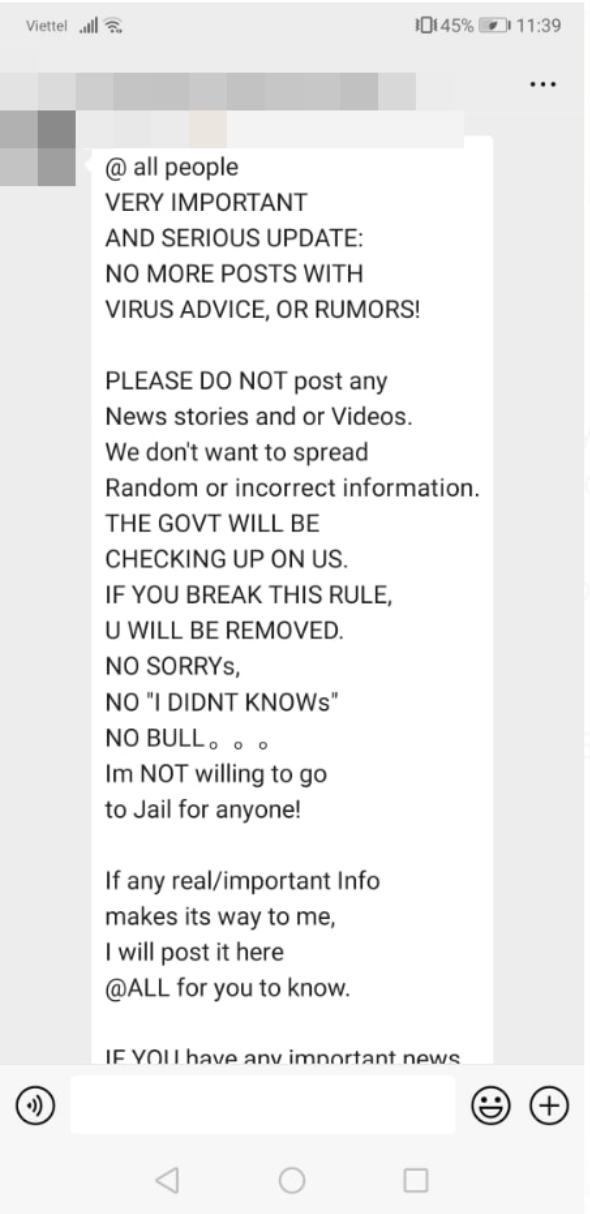
“The government hides all the news about it, so it gets more intense and stressful,” she said.
“Some people say it’s just hype, but I don’t think so. The virus is spreading very fast, and no one knows when it will stop.”
Instead, Julia has been sharing her thoughts about the ongoing situation on Instagram. “I’ve been posting information in Russian and English,” she said. “The photos are quite candid, but it’s the only way that people will read what I have to say. I think people need to know the truth and it’s unfair that they hide it.”
